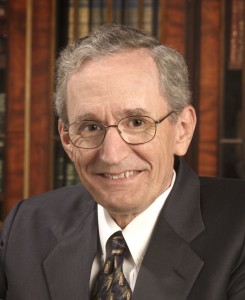
In May, the New York Times published an article “The Little Known Statistician Who Taught Us to Measure Teachers” which profiled the life of Dr. Bill Sanders. The author reflected on Dr. Sanders’ life and work improving education for all students. For those of us in education, Dr. Sanders’ work is hardly “little known” and his impact will be felt for generations to come.
Some of his team’s early findings include:
- Teaching matters. Teachers have the single largest influence on student learning gains.
- Teaching matters a lot because ineffective teaching cannot be compensated for in future years.
- Students’ backgrounds do not matter in terms of their ability to make progress. All students can grow.
While many of these statements now seem like common knowledge, Dr. Sanders’ research led the field in understanding the impact of teachers in the classroom and the ability of all students to learn. The New York Times article provided a great overview of Dr. Sanders’ life and work. In this blog, I want to share with you the lessons I learned while working with Dr. Sanders.
Not many people have the honor of working with and learning from a pioneer in their field but I had the privilege of doing just that with Dr. Sanders. In my home state of Tennessee, Bill Sanders is somewhat of a legend having started education value-added modeling in the state in the early 1990s. Early in my own career, Dr. Sanders was doing some research expanding the use of value-added into other areas such as assessing the impact of educator preparation on K-12 student learning. While working on some of this research, Dr. Sanders shared with me some important lessons he had learned throughout his career:
- Always verify your data with real world results.
- Continually refine and improve your work.
- Multiple data points are important.
- Check, double check, and triple check.
- Never stop learning and growing.
When we collaborated in this new area of research in educator preparation, he asked me to join him as we tested the results of our work. These lessons served Dr. Sanders well and were lessons he practiced daily throughout his career. Dr. Sanders was a lifelong learner who was always stretching his thinking and the thinking of others.
Dr. Sanders passed these lessons, his love for learning, and his insatiable appetite for improvement on to those of us who knew him. I am honored to be one small part of the team that continues his work today. I hope we make him proud by always challenging our assumptions, checking our data and findings with what we see playing out in the field, and continually improving our work.
Bill Sanders may be “a little known statistician” to the general public but each and every person in our country is touched by his work in improving teaching and learning and instilling the belief that every child can learn.
